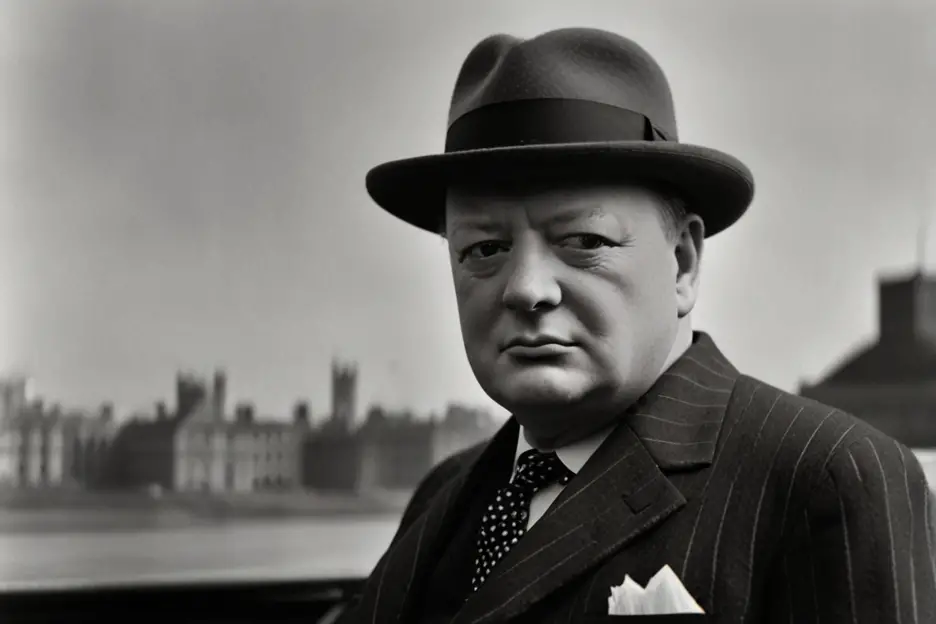
History is filled with individuals who have left lasting impacts on the world, but their legacies are not always straightforward.
Many historical figures have been celebrated for their accomplishments, yet their actions and beliefs have been criticized for being morally reprehensible.
This blog post will explore seven controversial historical figures, examining both their achievements and the controversies surrounding them.
7 Famous Controversial Historical Figures
1. Winston Churchill (1874-1965)

Winston Churchill, renowned for his leadership during World War II as Britain’s Prime Minister, remains a towering figure in history.
His stirring speeches rallied the British people and bolstered Allied resolve.
Moreover, his efforts laid the groundwork for the post-war creation of the welfare state in Britain, marking a significant shift in social policy.
However, Churchill’s legacy is not without controversy.
His views on race and colonialism, while reflective of his time, are deemed offensive by contemporary standards.
Criticism centers on his support for policies contributing to events like the Bengal Famine of 1943, which resulted in the deaths of millions in India.
This dark chapter underscores the complexities of Churchill’s leadership and its impact on global history.
- Read also: Unveiling Most Hated Historical Figures: The Shadows of Our Past
- Read also: Greed and Glory: Exploring the Lives of Greedy Historical Figures
2. Christopher Columbus (1451-1506)

Christopher Columbus is often lionized as the explorer who opened the doors to the Americas, yet his legacy is fraught with moral ambiguity.
While his voyage marked a pivotal moment in history, it also heralded the onset of European colonialism, which brought suffering and devastation to indigenous populations.
Accounts suggest Columbus engaged in acts of enslavement and violence against Indigenous peoples, tarnishing his image as an intrepid explorer.
The consequences of his expeditions reverberate through history, sparking debates over the ethics of commemorating his achievements in light of the suffering inflicted upon native communities.
3. Catherine the Great (1729-1796)

Catherine the Great’s reign as Empress of Russia is characterized by both grandeur and controversy.
She expanded the Russian Empire through conquest and diplomacy, fostering a golden age of cultural and intellectual flourishing.
Catherine’s patronage of the arts and promotion of education left an indelible mark on Russian society.
However, her ascent to power was marred by intrigue and violence, including the overthrow and likely murder of her husband, Peter III.
Catherine’s rule, while marked by progressive reforms, was also defined by the harsh suppression of dissent and the perpetuation of serfdom.
4. Genghis Khan (1162-1227)

Genghis Khan, the legendary founder of the Mongol Empire, is a figure of fascination and debate.
His leadership reshaped the course of history, yet it was marked by significant turmoil and tragedy.
While celebrated for his military genius and the expansion of his empire, Genghis Khan’s methods often brought immense suffering to those in his path.
Despite the bloodshed associated with his conquests, Genghis Khan implemented reforms aimed at maintaining order and stability within his vast territories.
His creation of the Yassa, a legal code governing his empire, provided a framework for governance and justice.
Additionally, his policies promoting trade along the Silk Road fostered cultural exchange and economic prosperity.
5. Mao Zedong (1893-1976)

Mao Zedong, a towering figure in modern Chinese history, is remembered for his role in shaping the destiny of a nation.
His leadership brought both progress and profound hardship to the Chinese people.
While credited with the establishment of the People’s Republic of China and initiatives to improve literacy and healthcare, Mao’s legacy is deeply tarnished by the consequences of his radical policies.
The Great Leap Forward and the Cultural Revolution, intended to propel China into a new era of prosperity and equality, instead resulted in widespread famine, persecution, and violence.
Despite the noble aspirations behind these campaigns, the human toll was staggering, leaving a scar on China’s collective memory.
6. Napoleon Bonaparte (1769-1821)

Napoleon Bonaparte, the enigmatic French leader, left an indelible mark on European history through his military conquests and legal reforms.
His ambition and strategic brilliance reshaped the political landscape of the continent, yet his legacy is one of both triumph and tyranny.
While the Napoleonic Code, his legal legacy, represented a significant step forward in modernizing legal systems, Napoleon’s wars brought untold suffering to millions.
The human cost of his campaigns, coupled with his authoritarian rule, raises complex questions about the balance between progress and sacrifice.
7. King Leopold II of Belgium (1831-1909)

King Leopold II of Belgium’s reign over the Congo Free State is a stark reminder of the dark side of colonialism.
Under the guise of benevolence, Leopold’s rule brought untold misery to the Congolese people.
Exploitation, forced labor, and violence were rampant, leaving a devastating legacy of suffering and oppression.
The atrocities committed under Leopold’s rule serve as a sobering reminder of the human cost of unchecked power and exploitation.
His legacy challenges us to confront the injustices of the past and strive for a more equitable and compassionate future.
Challenges of Applying Modern Values
Here are some of the challenges of applying modern values and ethics to historical figures:
Historical context
It’s crucial to recognize that societies and cultures evolve over time.
What might seem barbaric or unethical today could have been widely accepted in the past.
We must avoid judging historical figures solely through the lens of modern values, as this overlooks the context in which they operated and the complexities of their era.
Anachronism
Applying our present-day moral standards to historical contexts is known as anachronism.
Historical figures were shaped by the norms and knowledge of their time, which differed significantly from our own.
It’s important to understand their actions within the framework of their era, considering the social, political, and cultural factors at play.
Nuance vs. oversimplification
History is rarely straightforward; it’s filled with nuances and complexities.
While many historical figures made significant contributions, they were also capable of actions that we find morally objectionable today.
A balanced understanding acknowledges both the positive and negative aspects of their legacies, allowing for a more nuanced interpretation of history.
Moral relativism
Moral relativism, when taken to extremes, can complicate discussions about historical atrocities.
This perspective suggests that moral principles are relative to specific times and places, making it challenging to establish universal standards.
While context is important, it’s crucial to uphold fundamental moral values, even as we navigate the complexities of historical interpretation.
Selective outrage
It’s essential to approach historical assessment with a balanced perspective.
Sometimes, the outrage directed at certain figures may appear selective, ignoring similar flaws in others from the same period.
By considering the broader historical context and avoiding cherry-picking, we can foster a more comprehensive understanding of the complexities of history.
- Read also: 14 Deaf Historical Figures Who Defied the Odds
- Read also: Unmasking Genius: 7 Famous Historical Figures with ADHD
Conclusion
The legacies of these controversial historical figures are complex and multifaceted.
While they have made significant contributions to history, their actions and beliefs have also been criticized for being morally reprehensible.
It is essential to acknowledge both the positive and negative aspects of their legacies, recognizing the challenges of applying modern values to historical events.

